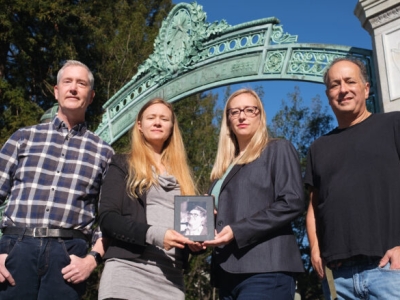New published research shows the need for changes to federal crop insurance programs that would benefit farmers, companies, and the climate.
Research News
Learn more about UC Berkeley's researchers and innovators.
Showing 1 - 16 of 3454 Results
A Berkeley sociology professor recalls the stories and lessons she has learned from years of interviewing undocumented young people.
A Berkeley professor explains her research in making the roads in the United States safer.
Decades of research leads to self-contained solar panels that convert carbon dioxide into C2 products.
Pulitzer-winning journalism professor discusses a ‘radical’ Berkeley experiment to develop the next generation of investigative reporters.
UC Berkeley scientists created a new platform called “Oz” that directly controls up to 1,000 photoreceptors in the eye at once, providing new insight into the nature of color vision and vision loss.
The Guggenheim Foundation awards two Berkeley professors one of the highest intellectual honors on North American academics and creatives.
Encouraged by Wendy Ingram faculty members shared their experiences with depression and anxiety to help bring these struggles into the open.
As federal research funding faces growing uncertainty, the Molecular Therapeutics Initiative (MTI) at UC Berkeley is stepping up to support bold scientific innovation.
A new study found ways to reduce Caltrain passengers' exposure to carcinogenic black carbon by an average of 89%.
As the Trump administration seeks to redirect museum and arts organizations, Berkeley academics assess the impact of pulled funding and new directives.
A new sensor measures electrodermal activity, an electrical property of the skin, to monitor hydration levels during physical activity.
Slushy hailstones of ammonia and water were part of a bizarre theory to explain the planet's poorly mixed atmosphere. These mushballs seem to be real.
While documented self-harm rates have increased across the board, researchers found multiracial girls, in particular, have seen incidences surge since 2016.
New measurements of the diffuse ionized hydrogen surrounding galaxies account for missing mass.
The Museum of Vertebrate Zoology has one of the largest collections of eggs in North America, and it's vital to researchers worldwide.
















